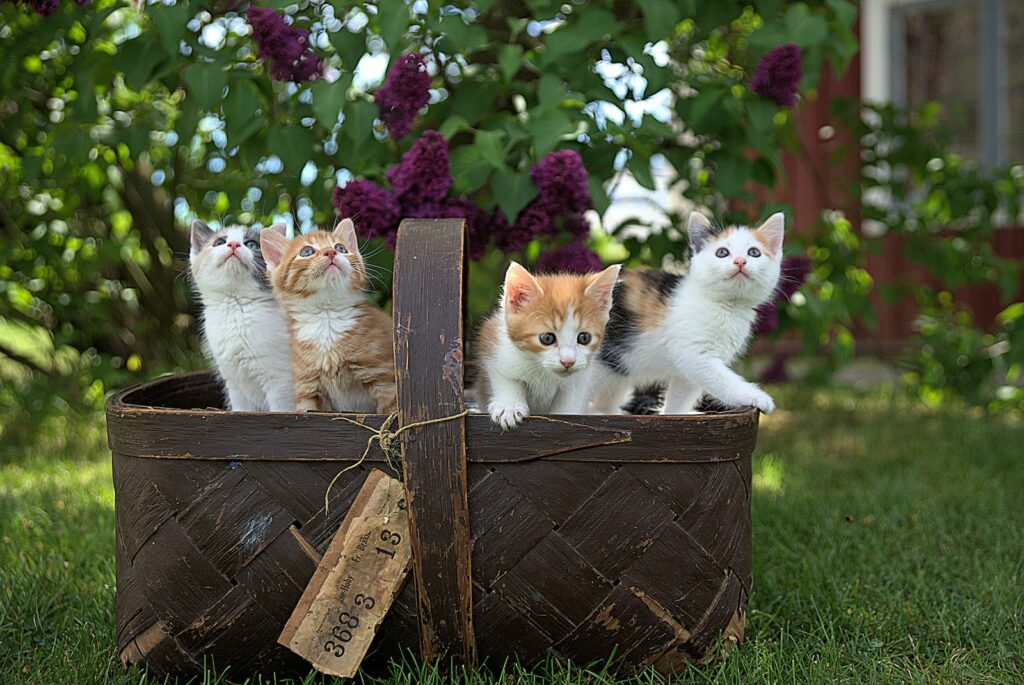Can Cats Eat Salami? — No, They can’t
Salami, a popular cured meat, should not be included in a cat’s diet. Cats have unique dietary needs that primarily consist of a balanced, protein-rich, and moisture-rich diet. While salami may be a tempting treat for humans, it poses potential risks to cats’ health and well-being.
Can Kittens Eat Salami?
Similarly, kittens should not be given salami as part of their diet. Their growing bodies require essential nutrients in order to develop properly, and salami does not provide the necessary nutrients kittens need for optimal growth. It’s best to stick to a balanced and appropriate kitten food diet recommended by veterinarians.
Things to consider when feeding salami to kittens?
Feeding salami to kittens can lead to digestive issues such as upset stomach, diarrhea, or vomiting. Additionally, the high salt content in salami can be harmful to their developing bodies. It is crucial to provide kittens with age-appropriate, nutritionally complete meals to support their growth and well-being.
Nutritional Benefits of Salami for Cats — Why Cats can’t have Salami?
No Key Nutrition Benefits
Salami does not offer any significant nutritional benefits for cats. It is high in sodium, fat, and processed ingredients, which are not suitable for a feline’s digestive system. Cats require specific amino acids, such as taurine, which are found in animal proteins but not in processed meats like salami.
Potential Allergies: Can Cats Be Allergic to Salami?
While cats can develop allergies to various foods, including meats, salami is not a common allergen specific to felines. However, individual cats may exhibit adverse reactions or sensitivities to the ingredients used in salami. It is always important to monitor your cat’s health and consult a veterinarian if any allergic symptoms occur.
Symptoms of Salami Allergies in Cats
- Diarrhea: Cats may experience loose stools or diarrhea after consuming salami.
- Vomiting: Some cats may vomit or have episodes of repeated regurgitation.
- Decreased Appetite: Allergic reactions can lead to a loss of appetite in cats.
What to Do If Your Cat Shows Symptoms?
- Contact Your Veterinarian: If you notice any allergic symptoms in your cat after eating salami, consult your veterinarian for appropriate guidance and treatment.
- Discontinue Salami: Avoid feeding your cat salami to prevent further allergic reactions or digestive issues.
- Provide Fresh Water: Ensure your cat has access to plenty of fresh water to stay hydrated.
Recommended Amount: How Much Salami Can a Cat Consume?
Cats should not consume salami at all. The high salt content, processed nature, and lack of essential nutrients make it an unsuitable food choice for felines. It’s important to prioritize their health and provide them with nutritionally balanced meals specifically formulated for cats.
Things to Consider When Feeding Salami to Cats
Feeding salami to cats can lead to various health issues, including dehydration, digestive disturbances, and potential allergic reactions. It is best to avoid feeding them this processed and high-sodium meat altogether.
How to Feed Salami to Cats: A Quick Guide
It is not recommended to feed salami to cats. However, if you are looking for alternative treat options, consider feline-friendly options such as cooked, unseasoned chicken or turkey. Always ensure that any treats or additions to your cat’s diet are appropriate and safe for feline consumption.
Conclusion
In conclusion, salami should not be included in a cat’s diet. Cats have specific nutritional requirements that are best met through high-quality, balanced cat food. Salami is a processed meat that can cause digestive issues and is lacking in essential nutrients for felines. It is crucial to prioritize their health and well-being by providing them with a suitable diet specifically designed for cats.






